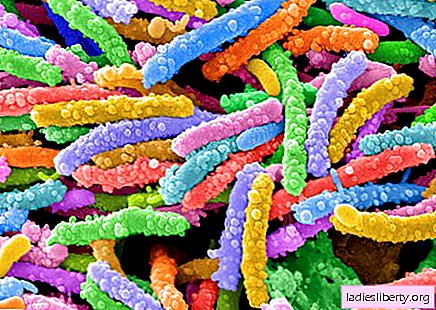
During pregnancy and preparation for the conception of a child, it is very important that future parents do not feel a lack of useful vitamins and minerals.
Most often, an imbalance of folic acid (vitamin B9) occurs, meanwhile, it is this element that seriously affects the course of pregnancy.
Folic acid is involved in the synthesis of DNA, with its help, the placenta and neural tube of the fetus, blood cells, immunity are formed, metabolism occurs. Experts say that the daily requirement of a pregnant woman for vitamin B9 is 400 mcg.
How is folic acid deficiency manifested?
A folic acid deficiency is not always noticeable, but when the concentration of vitamin B9 in the body becomes very low, the person develops anemia, which manifests itself in the form of frequent fainting, blanching of the skin, irritability, loss of appetite, and severe hair loss. In severe forms of vitamin B9 deficiency, diarrhea may appear, problems with the immune system, and oral ulcers may appear.
A folic acid deficiency is extremely dangerous for a pregnant woman; it can lead to disturbances in the formation of the child’s nervous system and brain, as well as defects in the spine. Sometimes a deficiency of vitamin B9 leads to detachment of the placenta, a dead pregnancy or a miscarriage.
Folic acid when planning pregnancy
In preparation for the conception of the baby, future parents should start taking vitamin B9 3 months before the crucial moment. It is important to realize that folic acid is required not only by the body of a woman, but also by a man, since vitamin B9 significantly increases the motor activity of sperm cells, hence the chance of rapid conception.
The dosage of folic acid depends on how much a man and woman consume foods that are high in vitamin B9, whether they abuse alcohol, whether there are problems with the functioning of the gastrointestinal tract, whether hormonal drugs are taken (alcohol, hormones, food system diseases significantly reduce the level of folic acid in the body).
For a healthy person (when planning pregnancy), the daily dose of vitamin B9 should be 400 mgk. If potential parents are at risk, the amount of folic acid should be increased.
Do not be too afraid of an overdose, of course, an excess of vitamin B9 in the body is not welcome, but in order to achieve it, you need to become a real fanatic and take about two dozen tablets per day.
Folic Acid During Pregnancy
The intake of folic acid for pregnant women in the first trimester is very important, at this time the baby's body is laying. However, this does not mean that after three months you should stop taking the acid, the fact is that in the fourth month the neural tube begins to form, this process requires a high content of vitamin B9 in the body of the expectant mother so that the child does not have serious pathologies, including delay mental development and problems with the spine.
Doctors say that even in the second half of the second trimester, when the neural tube has formed, you should not stop taking folic acid, its transformation may occur at a later date.
The dosage of vitamin B9 during pregnancy is 400 mcg per day, with a clear deficit increases to 5 mg. Do not forget that the vitamin complexes that doctors recommend to use for pregnant women already contain a daily dose of folic acid.
Vitamin B9 is non-toxic, it does not need to be specifically excreted from the body, the process occurs spontaneously, but it can be accelerated with strong tea.
Sources of Folic Acid for Pregnant Women
A large amount of folic acid is found in wholemeal flour, so pregnant women are advised to switch to such a product. Green vegetables are rich in vitamin B9, in particular, lettuce, onions, Brussels sprouts, green peas, spinach, parsley, asparagus beans, etc. Pay attention to fruits such as avocados, melon, apricots, citrus fruits. A large amount of folic acid is found in the liver and legumes, but cheese, meat and fish are less relevant in terms of filling the deficiency of vitamin B9. Folic acid tends to break down under the influence of high temperature, so it is better to eat raw vegetables.
Contraindications for folic acid intake
Vitamin B9 is not recommended for serious allergic reactions and bronchial asthma. If you do not follow this recommendation, life-threatening attacks of bronchospasm can be caused.
Folic acid activates the growth of cancer cells, if cancer is detected, it should be forgotten for a while.
Contraindication to the use of vitamin B9 is renal failure and pyelonephritis, the problem is that folic acid is initiated by the proliferation of the epithelium of the renal tubules.
In some cases, the reaction to taking vitamin B9 is not entirely adequate, vomiting, nausea, diarrhea begin, sleep disappears, cramps, severe abdominal pain occur, in which case the doctor determines the dosage and the need for folic acid intake.
Vitamin B9 is not prescribed for B12-deficient anemia, since folic acid neutralizes vitamin B12 and worsens the patient's condition.
Comments











